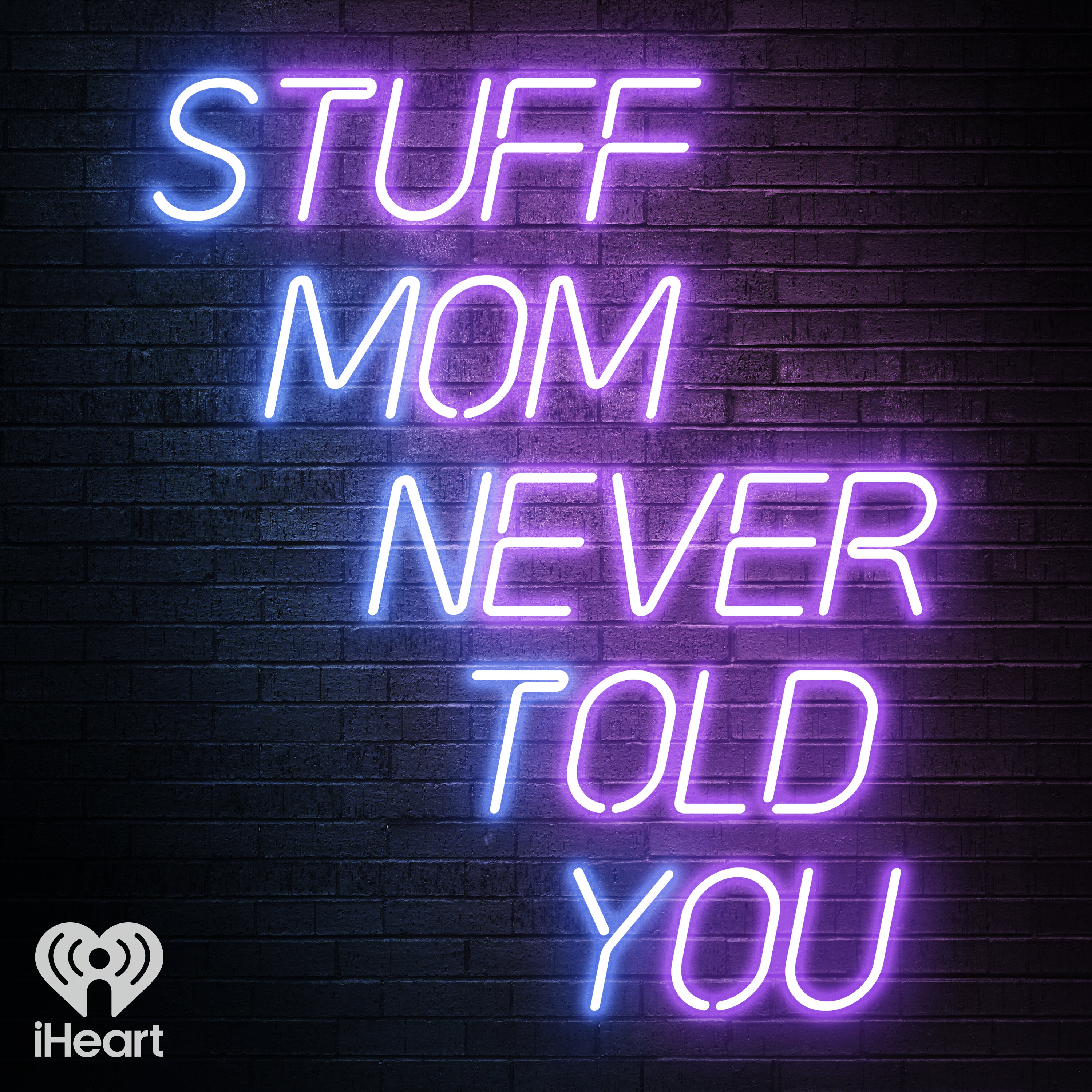
When Life Gives You Lemons
We do a bit of Research into handicapped travel issues and provide some solutions. Mobility, Hearing, Sight, Mental issues included. so far our episodes have included some information on Ataxia, Cerebral Palsy, Deafness, Dancing Sickness, Gulf War Syndrome, Long Covid and Wheelchairs. We are both Disability Advocates and realize there are too many diseases and conditions to cover and try to discuss the most common problems disabled people face and spread some awareness of disabled issues non-disabled people are unaware of.
CORRECTION
On a Previous episode I described how to enter our End Of Season contest. Step 1 click on the support our show link. Step 1 we require a one time payment (This has changed during our season) of $3. Step 3 (get you back to a one time payment) click on the $3 Subscription button. The following business day cancel the subscription (if you do it same day your bank may start thinking FRAUD. Step 4 Your done. Thanks for entering and "may the odds be forever in your favor",
When Life Gives You Lemons
Rolling Through History: Wheelchairs, Travel, and Community Tales
What if we told you the wheelchair has a history as rich and intricate as any invention? Join us as we uncover its evolution, from King Philip II's custom chair in 1595 to the birth of the first generic wheelchair. Discover the challenges we've faced firsthand while finding the perfect mobility solutions for ourselves and our loved ones, like custom designs for Pommy’s father. Through personal stories and a deep dive into the innovative spirit that continues to drive accessibility tools, we aim to inspire and inform those living with disabilities, their families, and allies.
Traveling with a wheelchair can feel like an adventure in itself. In this episode, we share practical tips and relatable anecdotes about navigating the trials of accessible travel. From securing a reliable vehicle to dealing with airline policies, we cover essential preparations to make journeys smoother. Hear about our experiences with wheelchair-accessible vehicles and how they impact family life. And don’t miss out on contributing to our community by sharing your stories and suggestions—visit us at www.whenlifegivesyoulemons.net and explore our YouTube channel, Making the Lemonade, to connect and collaborate further.
1.https://abilitytools.org/blog/history-of-the-wheelchair/#:~:text=The%20first%20known%20wheelchair%20purposefully,legs%20and%20an%20adjustable%20backrest.
2.https://www.wheelchairjunkie.com/history/
3. https://en.wikipedia.org/wiki/Paralytic_illness_of_Franklin_D._Roosevelt#:~:text=He%20was%20diagnosed%20with%20poliomyelitis,efforts%20to%20conceal%20in%20public.
4.https://www.quantumrehab.com/resources/consumer-article-motorized-wheelchairs-then-and-now.asp
5.https://www.fastcompany.com/90906945/airplanes-accessible-delta-products
I am also starting on a Facebook Group to interact with listeners, Come along for the ride.
Soundstripe.
Speaker 2:Welcome to our podcast with Life Kishilums. I'm Kevin Henry and my partner in crime, and life is Pommy Henry. I have a rare disease known as spinal cell viral ataxia, which is a neuromuscular disease. This has left me with mobility challenges, with a speech impediment and noise-induced anxiety.
Speaker 1:Living with these disabilities for over 20 years, we have developed helpful hints and life lessons that we would like to share with you. That has made our life easier and possible in some cases. We consider ourselves disability advocates and intend to educate ourselves and you about other disabilities and issues, and also talk about things we find interesting and frequently encounter when we're out and about.
Speaker 2:Hello folks, this is Kevin. I'd like to welcome you to our podcast. When Life Gives you Lemons. This time we're bringing you another classic episode. It's the very first episode we recorded and it's about wheelchairs. Enjoy.
Speaker 1:Well, hello there, you have reached the when Life Gives you Lemons podcast. My name is Palmy.
Speaker 2:My name is Kevin.
Speaker 1:He was diagnosed with ataxia spack about 22 years ago. We went through quite a bit of difficulties actually being diagnosed. It took us over three years. In the meantime he was treated at multiple sclerosis, but eventually we did come upon a doctor who that's all he did was do diagnoses, and he diagnosed Kevin with an ataxia, a specific ataxia disease. At the time he was given five years to live. As you can see in here, he is still with us kicking. I'm still alive and kicking. Yes, there you go, and what we wanted to do with this ataxia, with this podcast, is broaden everyone's knowledge on ataxia, also on handicapped issues that people who do not have handicaps may not be acquainted with with. Yeah, uh, so we're going to share and discuss issues um with, as with having a handicap and managing everyday issues, with a few life hacks that we've learned in the in with through our life. Kevin, we are going to focus on, uh, travel for this episode okay why don't we start with a little history?
Speaker 2:Okay, we're talking about the history of wheelchairs this time. Not because wheelchairs are like a modern marvel or anything, but the various medical conditions. Various medical conditions. That's probably the one thing most of them have in common. So yeah, let's talk about that.
Speaker 1:The first one in history was the King Philip one.
Speaker 2:Invented in 1595. For King Philip. Ii correct yeah of Spain On that. You have to bear in mind that then as now, you pretty much need to have wealth and influence on your side to get something custom built for you. And basically that's what he did, is he had people build it for him. He commissioned their work.
Speaker 1:It was kind of basic. It was just a chair that had small wheels attached to the end of the chair legs small wheels attached to the end of the chair legs and it included a platform for Phillips' legs and adjustable backrest. So pretty basic.
Speaker 2:Yeah, it's kind of hard to imagine what you have to think of. Unfortunately, a lot of wheelchairs or handicapped accessories in general are made by non-handicapped people and they don't think about needs per se.
Speaker 1:They think about the functionality and how it looks and stuff like that how it looks and you know stuff like that when in your mind you're looking at how it works with your specific handicapped, correct?
Speaker 2:Yeah, palmy's dad was having, or was staying with us after he had the stroke, and he pretty much had to remain in a very reclined position, and so he had to have a tailor-made custom wheelchair to allow him to recline enough for him to be comfortably taken to and from appointments.
Speaker 1:He had some back issues that he had had previous to the stroke. That was the reason why he was in a wheelchair, so but we never did find anything that really fit him well, because the other consideration we had to look into was something it had to be foldable. It had to be able to be folded up and put into a back, because we did not have our conversion van at that time.
Speaker 2:Yeah, so next on our list we get into the 18th century. They developed a wheelchair. They could actually be generically sold for just general handicap use. Uh, the one thing I don't really understand the illustrations don't really explain this how it worked. But you could theoretically hook up a horse or mule to, I guess, speed down the road. But I'm not it wasn't powered. I did not want to speed down the road.
Speaker 1:Yeah, it was man-powered or beast-powered, not motor-powered at that time.
Speaker 2:Yeah, I think it was still in the style of a chair with wheels.
Speaker 1:What it says is that the developer was an Englishman from Bath, john Dawson, from Bath, john Dawson, and it says he defined the wheelchair as a universal product complete with adjustable leg rest and reclining back seat backrest. Dawson's interpretation of the wheelchair as a device of practical mobility set the pace for the modern day wheelchair, and that was in 1783. So obviously there was no advancements for about two, three hundred years.
Speaker 2:Yeah, wheelchairs. Once they got them to where they are now, they really have not changed that much, but you can still have your wheelchair custom made or better made, to suit your needs. An example would be for athletic events, if you're into them, like the wheelchairs they use for basketball which is kind of ironic because everybody keeps telling me that's a non-contact sport and they're basically ramming each other and knocking their wheelchairs, you know, like a trade in paint in a NASCAR race. So okay, then let's spend a minute and talk about power chairs. This goes back. The first one was actually made by a guy who became handicapped himself, but he was a tradesman learned in the ways of watchmaking. So it was basically a mechanized wheelchair that you had to wind up and would run off the kinetic energy store by springs and then transferred to gears and sprockets to move whatever. And again, it was made for him, so it wasn't like made for handicapped people in general or sold.
Speaker 2:Made for handicapped people in general or sold. It wasn't until this century, I believe. They were actually generically made and sold and we're still in the phase where batteries are getting better, they're getting standardized. A good example is the batteries that power wheelchairs are sealed and certified so they can use public transportation or commercial transportation Airlines, buses and sort of like that.
Speaker 1:But that leads us into what we were talking about in association with travel for this episode. A lot of the wheelchairs were basically people didn't go anywhere, they were pretty much bedridden or went around the house. And most recently, in the last probably 50 years, people started venturing out of their home and so it became necessary for the transportation of this modern wheelchair. And when Kevin was first diagnosed, we decided for our family. One of the important things was we have a child and she was only four at the time, so we chose. We always both thought to ourselves what to get as many memories in for her and our family as possible. So we looked into lots of travel while she was of younger age. We did a lot of cruising, we did a lot of road trips, that kind of thing, that kind of thing. And we have come across quite a few issues while we've been doing this. First, when we first started, we didn't have a vehicle that would transport the wheelchair, so we had to. Kevin, well, we should talk about the first wheelchair you were assigned.
Speaker 2:Well, the very first wheelchair we had problems with because we're trying to fit it was appeared in the progression of a taxi, where you're going from a walker to a wheelchair and we were finding out just how difficult life in a wheelchair it can't be. So we'd still bring the walker, Just in case we ran across that one place that said they were handicapped accessible, but then you got stairs to contend with or something like that.
Speaker 1:Or even just a small little bump that the wheelchair was not able to get over. He had a over-engineered wheelchair what much more? Because the diagnosis was five years, of course, and so they thought he'd be much worse off than he ended up being. So it was way over engineered. It was the sip and puff motion. It basically would adjust him from sitting to laying down at any time. So it was really really heavy. And we found, while traveling specifically on airplanes, a lot of the airplanes that we were assigned to were not able to carry the weight of the wheelchair, and so we got waitlisted for a lot of uh planes, uh, waiting to get home or to get to our destination. Um, and that is very frustrating. I it's one time I think it was up to 12 hours, so it was not a convenient and we had a, a very young child, with us at the time, which does that does not make it comfortable at all. So a, what would it be called? Uh, a?
Speaker 1:lift yeah, it lifted it to, took the chair up by the side panels and lifted it up into our back of our van. It was cumbersome, didn't always fit correctly and, um, there was usually damage of something during the transportation or the, yeah, the transportation of that so when uh pommy talks about damage, it was usually on the cars or the van, so it's a vice versa.
Speaker 2:Yeah, it was a trade office resale value.
Speaker 1:It definitely impacted that well, our daughter took care of that, because she wrecked it. Well, yeah, but it did last us a long time, though she was 16 by the time she wrecked it, and I think we got it when she was five or six, so it was quite a while. But she had an accident and totaled our van, but it worked out because during that time, kevin was able to get back out of the wheelchair. He started to attend some adaptive martial arts that kept him really strong and fit for quite as long as his body would allow him to be, and so time-wise, it was fine. We worked out, it worked was fine. We worked up, it worked out fine. But then we ended up buying a very small vehicle um that we strapped the um at that time it was just either a manual wheelchair or a walker and we strapped that onto the back. We look like the Beverly Hillbillies at some point, so, but it did. It did work. We that would not be one of the things we would suggest, though.
Speaker 1:Yeah, the term handicap applies to everybody.
Speaker 2:That you know, basically is got broken limbs or damage or recoverings from surgery, major recoverings from surgery. There's a lot of different things that people might have going on. There's no way to sit down and go and talk about all of them. So we thought a wheelchair would be safer because, well, if you've been hospitalized.
Speaker 1:They tend to wheel you out in a wheelchair and at this point you started having trouble transferring and stuff and so it was safer for you two not to be in a walker or using a cane. So it was a big change and Kevin had to get his mind around it before we were actually able to start going to the next level, which was the wheelchair. That's a huge just like giving up driving originally was a huge mindset that getting and having to use the wheelchair more often or consistently was something he had to get around his mind first and then work through those issues himself. So let's give some tips on navigating some common issues While traveling on those airplanes.
Speaker 1:We mentioned about the weight of the chair. So what we did was we kept a manual in the back of the chair at all times, so at any point they could check to see what the back of our uh, the chair at all times. So at any point they could check to see what the weight of the the chair was. Um. Take off any extra um accessories, um, when you're transporting it either in the car or in the airplane, because they tend to get broken or damaged. So we learned that right away is to get all those extras off or lost. A lot of times it came back and it wasn't even there. They had taken it off. Verify all legs of your journey for your trip are able to handle the chair weight. Plan extra time to get through TSA. There was not one time that Kevin went through TSA that he was not padded down from head to toe. You know I understand why, but it's very hard when you can't maneuver very well to begin with, to have to stand up and, you know, assume the position.
Speaker 2:Basically, yeah, that was in the days before pre-certification at TSA.
Speaker 1:Checkpoint yeah, we would definitely recommend pre yeah if you're, you know, doing traveling a lot.
Speaker 2:I would recommend that because it wasn't fun. It was never quick, it was never easy.
Speaker 1:And I had a five-year-old that was running around that I had to keep track of while I was helping him stand up. Of course, they don't want you anywhere near the subject while they're doing that, but it's almost impossible for that to happen. Also, removable shoes very easily. Removable shoes or even socks at some point, if you're not having to transfer, would make it a lot easier during getting through that.
Speaker 2:I read an article about a company in Germany that makes basically cockpit accessories for airliners and they developed a wheelchair where it's no longer considered by an airline as luggage. You wheel it to position and basically they strap you down Like they do on buses.
Speaker 1:That would be great.
Speaker 2:It would be. I don't know how widely spread that concept will go. For all I know, because it's in the future, I don't know it may not get off the ground. I think you said there were airlines already that did something like that.
Speaker 1:I think I heard somewhere that there was one airline that had it on there. I was on an accessibility website that I was looking at. We can also talk about vehicles, also talk about uh. We can also talk about um vehicles. We just recently got a new vehicle, pacifica. That is a conversion van, um. It's absolutely amazing. Um kevin can wheel up either in the passenger seat or there's two spots in the back where he can tie down back there.
Speaker 1:During when my dad was living with us, we were looking at vehicles that could handle two wheelchairs, and this was one of them that we found, and we just fell in love with it. We took a test drive the company here allows you to rent the vehicle in which we took a long road trip up to Michigan and back, and after that trip, we just found out that it was just exactly what we had needed at the right time, so we really do love the vehicle. However, it does not get great gas mileage and it was super expensive. So those are some of the things you have to look at when you're looking for handicapped accessories, I guess.
Speaker 2:Yeah, it definitely helps to be very wealthy if you're handicapped, because everything is very, very expensive. Yeah, and insurance companies are always looking for ways not to pay for things yep, they don't make money if they have to pay rental cars.
Speaker 1:Make sure that they can handle the chair. There's lots of extra charges because you do have the wheelchair. So just educate yourself before you go. Try just to scope out. This is we do this all the time and this is typically my job. We try to scope out public areas that they aren't too difficult for Kevin to get in and to manage and to wheel around in.
Speaker 1:We had a couple of incidences where we were in a restaurant and a tourist area a Disney World where Kevin at one point had a scooter, a three-wheel scooter, instead of a wheelchair. He thought he could handle that better the handlebars versus the manual small controls at that point and we were refused access. He was refused access with the scooter. They said their insurance did not cover that. So again, we were very smart. We always carried a walker with us and we walked him into the restaurant to the closest table we could possibly get. So be aware of that and I'm sure that it won't happen that was the rare occasion that that happened and also verify, and double verify, that handicap accessibility is at wherever you're going.
Speaker 1:We were once at a motel. We asked for a handicap room. We were given it. No, no problem. But when we got there, there was a small step that had to be maneuvered in order to get to the room. So that is a no-go unless you have a ramp is a no-go unless you have a ramp. So that was a lot of hassle for not a lot of happiness. I think we're going to end up ending today. Kevin, we have a website.
Speaker 2:What is that website? Wwwwhenlifegivesyoulem lemonsnet, and what we'll do is post the links to the items we researched on a page on that website.
Speaker 1:And what we'd like from you guys is to like and share. If you like the podcast, you feel that there was education here and you'd like someone else to share with you, and also examples or requests of future episode topics. We're open to investigate and research anything that you want us to do and we welcome comments and suggestions.
Speaker 2:Some of you may have ideas that work well for you, and we'd love to hear about them.
Speaker 1:Yeah, we get a lot of information from other people we talk about that have. Kevin belongs to the Ataxia support group and he gets a lot of information from that. Well, thank you, and we'll end our episode here. Goodbye, everybody. We are always looking to improve the podcast, so if you want to hear a specific topic, have a differencing opinion, to add something to the conversation, drop us an email. Our contact information is listed on our website. It's wwwwhenlifegivesyoulemonsnet. We have recently added a companion YouTube channel called Making the Lemonade. If you enjoy the podcast, continue your enjoyment by joining us on YouTube.
Podcasts we love
Check out these other fine podcasts recommended by us, not an algorithm.

When Life Gives You Lemons
Kevin & Palmi Henry
Stuff They Don't Want You To Know
iHeartPodcasts
Stuff Mom Never Told You
iHeartPodcasts
Stuff You Missed in History Class
iHeartPodcasts
Planet Money
NPR
Ridiculous History
iHeartPodcasts
The Way I Heard It with Mike Rowe
The Way I Heard It with Mike Rowe




